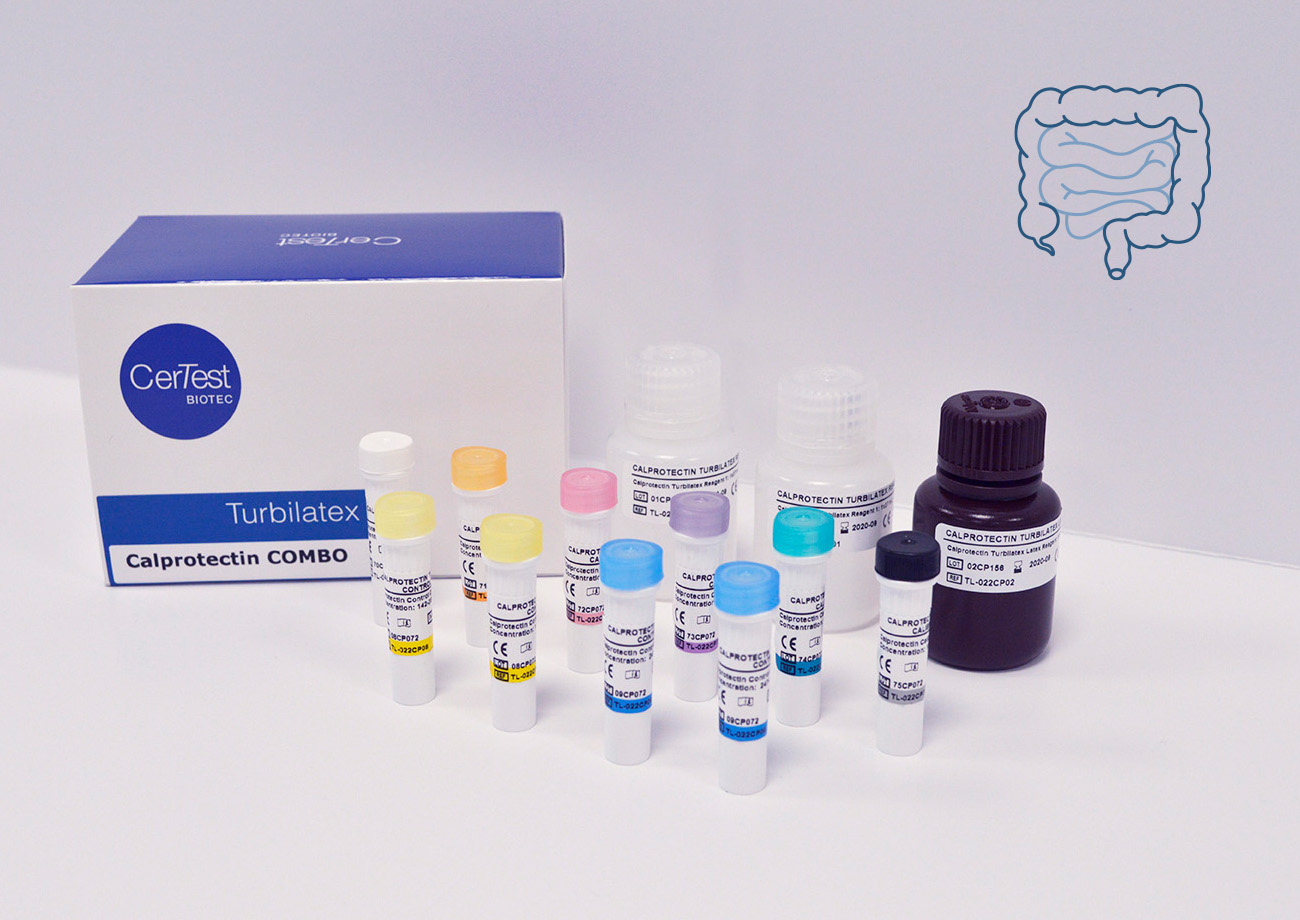
Turbilatex
Calprotectin Turbilatex
Application Notes
_AN. Calprotectin Turbilatex. A15, Biosystems _AN. Calprotectin Turbilatex. ADVIA 1800, Siemens _AN. Calprotectin Turbilatex. ADVIA 2400, Siemens _AN. Calprotectin Turbilatex. Alinity c-series, Abbott _AN. Calprotectin Turbilatex. Architect c4000/c8000/c16000, Abbott _AN. Calprotectin Turbilatex. ATELLICA, Siemens _AN. Calprotectin Turbilatex. AU680, Beckman Coulter _AN. Calprotectin Turbilatex. BK-mini, Biobase _AN. Calprotectin Turbilatex. Bioassays 240PLUS, Snibe _AN. Calprotectin Turbilatex. Biolis 24i/50i, Tokyo Boeki _AN. Calprotectin Turbilatex. Biolis 30i, Tokyo Boeki _AN. Calprotectin Turbilatex. BS-200/200-E, Mindray _AN. Calprotectin Turbilatex. BS-230, Mindray _AN. Calprotectin Turbilatex. Chemwell-T, Awareness _AN. Calprotectin Turbilatex. Cobas c111, Roche _AN. Calprotectin Turbilatex. Cobas c311, Roche _AN. Calprotectin Turbilatex. Cobas c501, c502, c503, Roche _AN. Calprotectin Turbilatex. Cobas c702, Roche _AN. Calprotectin Turbilatex. Cobas Integra 400 Plus, Roche _AN. Calprotectin Turbilatex. InCCA; InCCA bit, Diconex _AN. Calprotectin Turbilatex. Optilite, Binding Site _AN. Calprotectin Turbilatex. Respons 910, Diasys Diagnostic Systems GmbH _AN. Calprotectin Turbilatex. Selectra PRO S; Selectra PRO M, Elitech _AN. Calprotectin Turbilatex. TC220, Tecan _AN. Calprotectin Turbilatex. Vitros 5600, Ortho Clinical Diagnostics _AN. Calprotectin Turbilatex. XL-180 & XL-200, Erba

Description
Inflammatory bowel disease (IBD) has different clinical forms which may affect the whole digestive tract, but more often the colon and rectum. Its importance lies in the levels of chronicity, the frequency of relapses, hospital admissions and a not insignificant risk of bowl cancer.
Certest Calprotectin Turbilatex is a non-invasive immunological assay which quantifies the calprotectin present in human feces. This simple test is able to provide quick, reliable information about the condition of the patient’s inflammatory process.
Specifications
Information
In addition, the incidence of the disease is clearly rising all over the world. Therefore, the use of a rapid, simple and non-invasive diagnostic tool is of great interest for the physician.
Calprotectin is a protein present in the neutrophils, which appears in high concentrations in any tissue which is experiencing an inflammatory process. In the case of patients with inflammatory bowel disease, this protein can be detected in patient feces. The protein has a high resistance to degradation, making it stable in the fecal content.
Numerous studies support the use of this marker as a diagnostic and monitoring tool for inflammatory bowel disease and severe illnesses, such as Ulcerative Colitis (UC), Crohn’s disease and indeterminate colitis. It has also been considered as an initial screening method for patients with chronic diarrhea.
